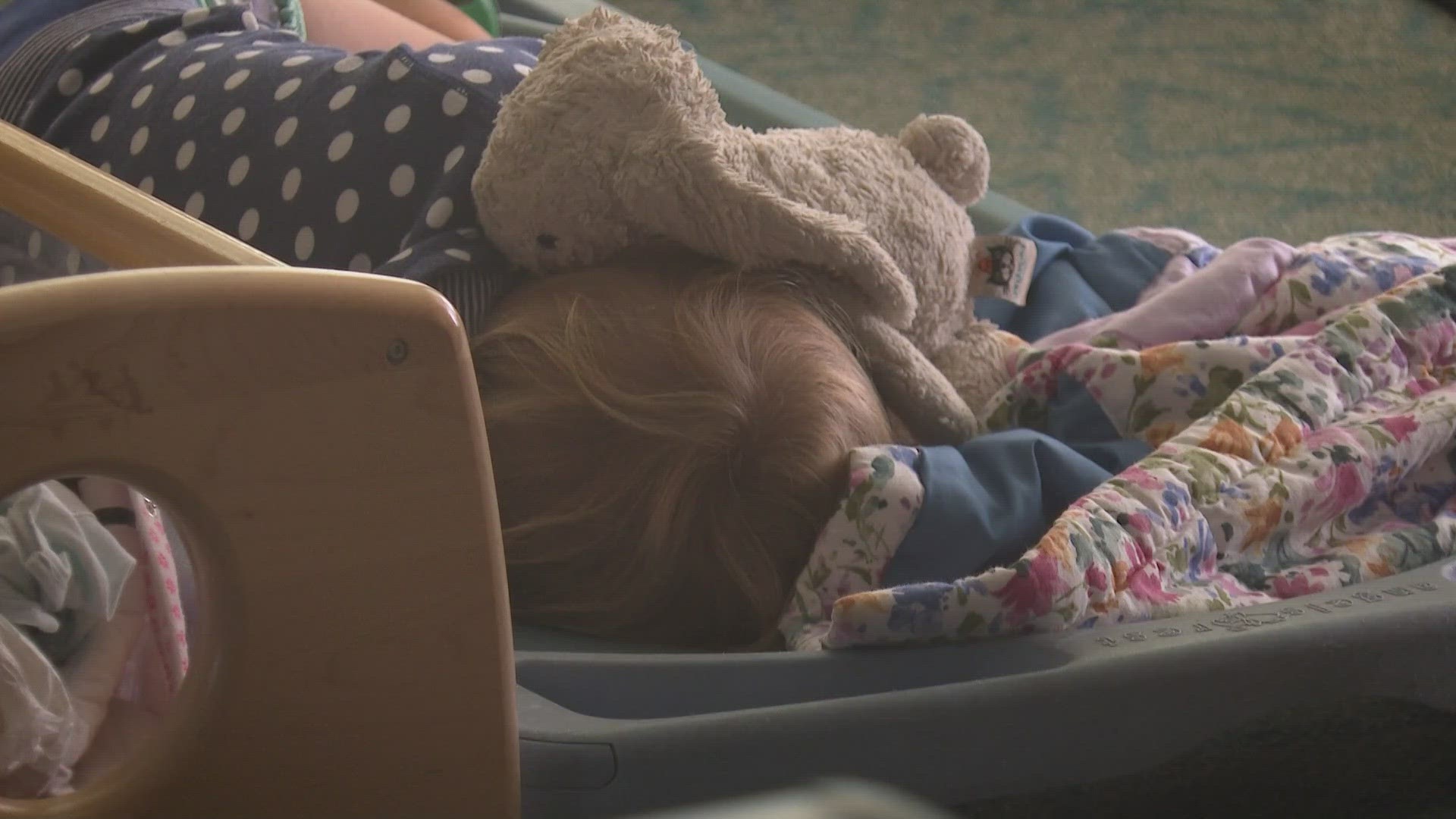BRUNSWICK, Maine — Maine child care providers worry that they will lose staff or have to increase costs for families when federal funds to support child care providers nationwide expire at the end of September.
Maine received $45.7 million in supplemental Child Care and Development Fund (CCDF) Discretionary Funds from the American Rescue Plan Act. Maine Department of Health and Human Services spokesperson Jackie Farwell said 86 percent of eligible child care facilities took advantage of that money.
Included in those funds were transition grants, which helped providers stay open to cover the lost income of parents who were suddenly staying home with their kids during the COVID-19 pandemic. Those payments were based on how many kids a facility could care for under its license. They started at $100 per child in October of 2022, slowly phasing down to $25 per child.
The federal funds also helped cover the cost of waiving co-pays for low-income families receiving subsidies to enroll in child care so parents could work. These dollars are set to expire Sept. 30.
Child care providers say losing the funds will put them in a difficult position that will inevitably lead to facilities closing.
Here's the Catch-22: A provider could keep staff pay the same by increasing enrollment costs for families but risk parents leaving because of unaffordable prices, which would in turn affect staff pay. Or they could cut staff pay to keep family costs the same and risk the staff leaving for better-paying jobs, forcing the facility to close classrooms due to unattainable required student-to-teacher ratios.
"Parents can't pay more, but if I can't pay my staff more, they're going to be out of care one way or another," Laura Larson, director of Family Focus in Brunswick, said. "Either they're not going to get it because they can't afford it, or they're not going to get it because I can't keep the workers."
Larson has been working at that facility for 18 years. She said for the past 10 years, child care providers have been telling lawmakers that the system is broken and that "the math doesn't add up."
She said most providers used the federal funds to boost staff pay, while keeping families' costs the same.
"That kept places alive if it wasn't for that money," Larson said. "They were only giving us the true cost of care that we weren't collecting. So the true cost of care, and what we can actually charge families is completely different."
"It's that pinch of 'what's that fine line of what families can afford to what programs can operate on' and 'this always been broken,'" Heather Marden, co-executive director of the Maine Association for the Education of Young Children, said. "We understand there needs to be public investments to make that business model better for early childhood programs and for the whole economy. We need child care so that folks can get to work."
Maine has agreed to make those public investments. Maine Senate President Troy Jackson led the charge to fund COVID-era stipends for child care workers of $200 per month under the state budget. Those will change to a tiered system based on an educator's experience starting Oct. 25.
Those pieces of legislation also expanded the number of families able to use the state's child care subsidy program. Families who make up to 125 percent of the area median income will be eligible for that money.
"If you're going to drop your kids off there and go to work and know that they're going to be safe, protected and learn while they're there, I mean, there's a cost to that," Jackson said. "They can't charge more because they know the families know how hard it is already for families. It's something that we're just going to have to step up and do to make sure that we have the workers, we have the good facilities for kids. I'm committed to making that happen."
Jackson's perspective on the issue involves bolstering, or at least, maintaining, the state's workforce. Parents who do not have affordable child care will choose to stay home to care for their kids, he said.
Larson said she agrees.
"Some of these families are paying as much as their mortgages," Larson said. "You shouldn't be paying 30 percent, 40 percent of your income for child care so you can get in your car and go to work. A lot of people are trying to decide is this worth going to work for."
Rep. Chellie Pingree, D-Maine, and Sen. Angus King, I-Maine, have signed onto a bill called the Child Care Stabilization Act, which would provide $16 billion in mandatory funding each year for the next five years to continue the successful Child Care Stabilization Grant program.
"This investment would ensure child care providers continue to receive a stable and reliable source of funding to help them deliver high-quality and affordable child care for working families across the country," the office of Rep. Salud Carbajal, D-California, said.
Jackson said he's working on a bill for the next legislative session to help facilities that use subsidy to accept low-income families.
The bill would reimburse those providers based on enrollment, not attendance, which he said will provide more stability.
The state is conducting a cost of care survey to see what families pay for and what expenses facilities have.

